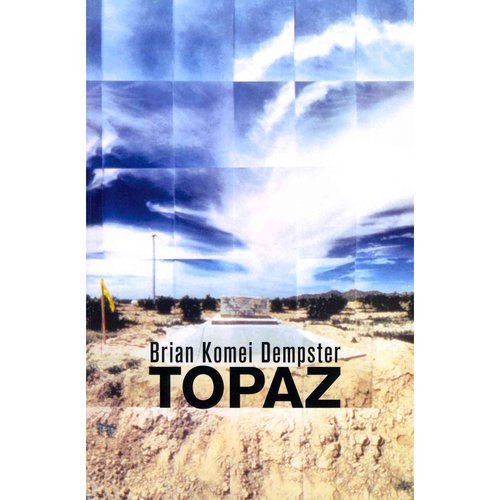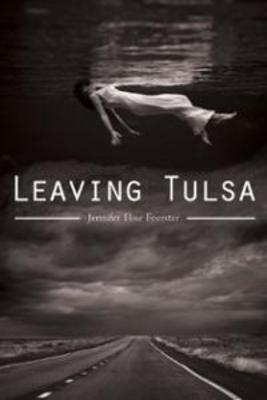Few projects in publishing are as little understood as the first book of poems -- especially among non-poets. Most civilians I talk to think it's pretty easy to publish a book of poems and are even surprised when I break the news that there are really no advances, no agents and no bidding wars.
If only..
First of all, almost no press will publish a poet's first book. Pretty much the only way to get a first book of poetry accepted is to win a contest -- either a "First Book Contest" or some open contest any writer can submit to. Publishing a first book of poems can and usually does involve years of agonizing over the organization of your manuscript, paying submission fees, writing cover letters, stuffing your manuscript in a big envelope, sending your work out to contests and open reading periods, and waiting for months in hopes that someone selects the needle of your manuscript out of a haystack of competitors.
The larger and more prestigious contests will receive up to 1,000 submissions. Most are in the 500-800 range; so the odds of the contest judge or an editorial board selecting your manuscript are not, one might say, strong. I know one excellent poet who, over several years, was a finalist for 17 different contests before finally getting that glorious phone call.
And so, first books are special -- especially for the poet. But also for readers. Usually, they are exceptionally well crafted, smartly put together, and, provocatively themed. The three books under review here all fit that bill. They are also profoundly concerned with history, race, and American proclivities toward oppression and subjugation. They stand as proof that contemporary American poetry can speak to current and past social issues with clarity and conviction.
Brian Dempster, Topaz (Four Way Books, 2014)
"Topaz" is shorthand for the Topaz Relocation Center, an internment camp for Japanese Immigrants and Americans of Japanese descent during World War II. Located in the rural high desert of central Utah, Topaz was a strange place. Comprised mainly of residents from the San Francisco Bay Area, Topaz functioned as a prison but was made to feel "normal" with houses and street names. In Brian Komei Dempster's bold collection, Topaz is more than an historical site; it is a site of personal and political location. Dempster's grandparents were not only incarcerated in camps like Topaz, they were separated from each other. Dempster's grandmother cared for Dempster's infant mother on her own at Topaz before eventually being reunited with Dempster's grandfather in a Texas internment camp. Many of the poems explore this double or triple or quadruple level of separation.
One of the strongest poems in this vein is the remarkable "I Factor in My Mother's Division from Her Father with a Sentence Written by Lieutenant General John L. DeWitt in 1942," in which Dempster collates fragments of his own lyric poem with this statement by General DeWitt: "The very fact that no sabotage has taken place to date is a disturbing and confirming indication that such action will be taken." Dempster separates phrases of this sentence from each other, sequestering them, dispersing them throughout the poetic field. In between the fragments of the italicized DeWitt lines is a landscape of artifacts, both universal and particular:
Grandfather erased
from my mother, her two-year-old facebehind barbed wire,
a numbered tag
attached to her coat. Fabricated formulasa disturbing
tunnel to a storehouse of invisible guns and dynamite
where her father supposedly hideswhen he's really trapped in an open desert far from his daughter
coughing in her steamer-trunk crib.
These facts of herand confirming indication
of me and this page swirl into a Topaz blur
of over sixty years ago,
This poem is a masterful example of how a poet can use poetic form to augment a poem's purpose. Notice how Dempster deploys the many tools of poetry—stanzas, line breaks, indentation— to encode into the text a physical and visceral separation that the poem explores thematically. I also love how the poem creates a dialogue with DeWitt that history did not allow.
What history denies, poetry creates.
Dempster is at his best when he uses dialogue as dual forms of interrogation—both as a question and a form of pressure. In "Storm Breaks," Dempster explores a different notion of separation but one still tied to history, race and culture. The poem begins with a startling declaration, "Every war begins somewhere" and continues with military metaphors:
Out the accusations came, armed
like soldiers barring the way, backing me into your corner,
You never bring flowers to the house. You haven't even learnedto pronounce my parents' names. You don't ever bow
and speak to my father in Korean. And I, half-Japanese,barely able to speak the first language of my own mother
One of the many threads running through the poems of Topaz is family, and in particular how fathers and daughters, grandsons and grandparents, husbands and wives, talk to each other when "communication" is impossible, whether it is something as intimate as a family argument or as horrific as imprisonment. A technique Dempster turns to throughout the book is the persona poem. Here and there, we get a poem spoken in the voice of a relative or an imagined figure from the past. "Over the Earth," a lovely and haunting lyric poem, comes to us from the 1937 Nanking Massacre:
I don't want us
to end here, wondering
who will be first,our eyes lowered
as the soldiers raise
their blades,slicing those
ahead of us.
Kneeling by the gutter,I conjure our home
in fading light.
Intimacy in the face of terror is one of the great gifts of language. Nothing is more intimate than home, the place where love lives, strains, and endures. Family and memory are durable, sustaining, despite the long hatchet of history. We know this, but poetry has a special way of reminding how important and necessary communication is. Language and memory are the twin roots connecting us to both people and place, and Dempster's collection is a sobering reminder of how fragile and powerful those roots are.
Tess Taylor, The Forage House (Red Hen Press, 2013)
I am convinced most of our country-people have no idea or have forgotten just how weird American history actually is. Thomas Jefferson has always seemed to me the great embodiment of American contradiction: on one hand, a radical, an iconoclast, a true visionary, and on the other, a man willfully blind, wrongheaded, and creepy. Tess Taylor addresses all of these faces of Jefferson (and therefore America) in her thoughtful and ambitious collection, The Forage House. A descendant of Jefferson, Taylor mines her ancestry for answers to complicated questions. Like Dempster, Taylor uses the poem as a mode of examination and questioning. She tries to come to terms with her slave-owning ancestors, she takes Jefferson to task for his most egregious shortcomings, and she asks how deep issues of race, ownership, and freedom might get passed down and internalized across generations.
As Dempster discovers, piecing together the scrapbook of history (and the scrapbook of family history) is a difficult process. Both poets turn to non-poetic sources for poetic inspiration; in Taylor's case it's recipes, wills, to-do lists, maps, journals, and other ephemera. Taylor understands that "documents" is both a noun and a verb, and you can see how she is interested in using the poem as a form of documentation capable of telling stories backward into the past. Both she and Dempster share a fondness for giving voice to those whose words history has either erased, ignored, or never allowed to be spoken.
One of my favorite pieces in the book is the beguiling "In May Whitcomb's Letters," a two-part poem that appears to be entirely documentary. The first part of the poem is a series of instructions for prisoners of war during World War I who wish to write letters home. The second part is the highly redacted/censored letter Whitcomb sends from a POW camp. The tension and interplay between authoritative and censored text is a linguistic metaphor for larger issues of social and political power. Who determines who speaks and who is heard? What is written and what is erased?
The overdetermined voice of the lyric poet stays away from this poem. The only speakers are the named but powerless Whitcomb and the nameless but all-powerful voice of colonialism. Taylor, masterfully, lets the documents speak for themselves. In "Southampton County Will 1745," however, Taylor enters into dialogue voices of the past—her slave-holding relatives Etheldred Taylor and one Thomas Jefferson. The poem begins ominously:
I, Etheldred Taylor, sound mind and body
in the presence of God almighty amen
do deed three things:Books Negroes Land.
(Accumulations pass each to a son.)I find his will, pen in hand.
Shift my books, hurt to see.From his dim ghost I inherit
everything, nothing:
What we inherit, both literally and symbolically, is perhaps the great question Taylor's book poses. To what degree do we get to choose the traits we inherit? Are there some for which we have no say? Mr. Jefferson keeps returning in this regard. In the second section, Taylor recognizes a reluctant alignment with the man:
In another ink-smear, crazed genealogy:
Jefferson, indebted, sold his own booksto form the first national library.
He bought more.Wrote: "I cannot live without books,"
then died in a debt greater than the nation's.
The ghost of Jefferson haunts the poet most dramatically in "A Letter to Jefferson from Monticello," the book's longest and best poem. Jefferson is big enough as a founding father, but as an ancestor, he must feel huge. Taylor, though, is not afraid to kick him to the curb. The final lines of the opening section throw down the gauntlet: "O hypocrite—you make me tired. / Like Whitman, you contradict yourself."
Linking Jefferson and Whitman is a nice move. They seem utterly opposite, but each occupies a different but complementary embodiment of Americanness.
From there, the poem takes on, praises, critiques, examines, and reflects on Jefferson's legacy as well as his contributions and failings. The poem ends, where it must end, with a mixture of acceptance and resistance, words that America, especially in the wake of Ferguson, Missouri, should be saying to the world right now: "O architect of hopes and lies, / brilliant, fascinating— / ambitious foundering father I revere & hate & see myself in."
Jennifer Elise Foerster, Leaving Tulsa (University of Arizona Press, 2013)
If had a dollar for every time I left Tulsa, I'd have, like, I don't know, maybe a hundred dollars. My grandmother lived in Tulsa for most of my childhood, and every time we pulled onto Turner Turnpike, I knew we had a brutal three-hour drive back to my home town on the other side of the state. Jennifer Foerster has something different in mind (and yet not) when she leaves Tulsa. Like Taylor, Foerster travels across the country in search of those things we all search for (and turn to poetry for): identity, home, a sense of belonging, a connection to history, the possibility of love. In poems that are at once celebratory and elegaic, Foerster crafts a love letter to the twin acts of departure and return.
Like most of us from Oklahoma (and like Taylor and Dempster), Foerster's ancestry is a complex melange of relocation, oppression, intermarriage, and perhaps even a question mark or two. Part German, Dutch, and Muscogee (Creek), Foerster is all Oklahoman. I recognized a great deal in her book but responded immediately and viscerally to the third stanza of the title poem:
Grandma fell in love with a truck driver,
grew watermelons by the pond
on our Indian allotment,
took us fishing for dragonflies.
When the bulldozers came
with their documents from the city
and a truckload of pipelines,
her shotgun was already loaded.
I'm convinced my grandfather kept his rifle loaded in hopes that a Republican from the city might roll up and try to steal his land. No such luck. Nevertheless, he maintained a healthy skepticism toward documents and their sneakiness. The quiet power of documents and documentation is the silent soundtrack for these books. The Indian Removal Act, the Declaration of Independence, letters, wills, journals, Executive Order 9066. American history is based on the power of one document over another. The poem stands in opposition to those authorless documents. It is a position of resistance, like Foerster's grandmother ready with the shotgun.
There are many things poetry can and cannot do. One thing in its power is the ability to articulate the connection between people and place. That Foerster, Taylor and Dempster turn to poetry as a site of location (both personal and political) is a testament to the form's natural sense of grounding. With titles like "Maps," "Genesis," "Flight," "Gasoline," "Leaving Tulsa," "The Outskirts," "Going West," and "History," many of Foerster's poems work this ground. The opening poem of the book, "Relic," begins as follows:
An atlas
on the underside of my dream.My half-shut eyelid—
a black wing.I dipped sharp quills
in the night's mouth—moths swarmed
from my throat.I pulled a feather blanket
over my skeleton
and woke—a map of America
flapping in the dark.
That's a cool beginning to a book of poems. I like how these highly imagistic lines advance a poetics of cartography. Janice Gould has written about the importance of maps for Native women poets, and Foerster's fine collection makes me wish her book would have been around for Gould to include in her essay. I'm thinking particularly of "Atlas," a short poem that comes near the end of Leaving Tulsa:
I have tried to erase you
but you are already blank.I hang your dress
in the hot south wind.Only a rustle
of crows in the treesas far off, our atlas
curls over the ledgelike a little blue wave.
For those on a journey, maps are a necessity. Jefferson was obsessed with them. In fact, Taylor includes a poem about what would become the canonical map of Virginia. Some of the best contemporary American Indian poetry and painting confronts the troubling history of mapmaking in the United States. Maps, too, are a type of exclusionary document in need of reinvention.
Geography plays an unusually large role in these books, and Taylor, Dempster, and Foerster each include poems about California. As Bay Area poets concerned with land, topography, and the relationship between land and power, this seems fitting. For all three, California marks the end of something. For all three, California marks the beginning of something.
And, even though these books confront the past, they are ultimately about beginnings. All three explore how historical trauma can, many years later, facilitate personal identity formation. One way these poets advance this project is through distinguishing literary form. I have talked mostly here about what we have come to call "theme," a term I very much dislike, but, each of these poets makes poetic form a form of identity. Taylor with her multi-valenced voices, Foerster with her deep image lyricism, Dempster with his fragmented lines and dislocating syntax.
Ezra Pound once described the epic as a "poem that contains history." For him history and the epic went hand-in-hand. In fact, the best epic poems don't just contain history--they create it. The epic's sweep, history's sweep are, for Pound, two sides of the same coin. But, the project of lyric poetry is different than that of the epic. Smaller, less narrative, more fragmented, more personal, the lyric's interrogative gestures, its personal pressures enable it to simultaneously deconstruct history while constructing the self. In so doing, these first books take an important step toward all kinds of new histories.



